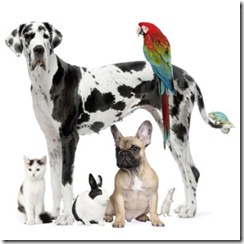 The following foods are not safe for dogs, cats, potbellied pigs, or guinea pigs. Never give the following foods or beverages to your pets:
The following foods are not safe for dogs, cats, potbellied pigs, or guinea pigs. Never give the following foods or beverages to your pets:
- *Alcohol of any kind (a no-no for all animals)
- *Anything with Caffeine (a no-no for all animals)
- Avocados – especially for birds and cats
- Baby food if it contains onion powder
- Bones from Ham, Chicken, Turkey or Cooked Bones that can splinter
- * (Raw) Bread or Yeast Dough
- Candied Yams
- Casseroles (unless you absolutely know that none of the no-no foods are in them)
- *Chocolate and Cocoa (this includes things like brownies and chocolate chip cookies) and dark chocolate is the worst
- Raw cookie dough can also kill dogs and small children.
- *Grapes or raisins
- Jell-O Molds
- (Raw) Liver
- *Macadamia Nuts (this includes things like cookies and pies) and go easy on nuts in general (nuts in general are not great for dogs, but walnuts, macadamia nuts, and pecans are particularly harmful and add the additional possibilities of health problems caused by fungus and mold. Peanuts and peanut butter are not on the no-no list but could also cause problems because of mold issues). Nuts are rich in monounsaturated fats, which are healthy for humans, but too much fat of any kind increases the risk of pancreatitis in dogs.
- Milk (and American Cheese) can be a problem for some dogs. They can be lactose intolerant like some people.
- Mushrooms, particularly wild mushrooms.
- Nutmeg
- *Onions, including onion powder (garlic should be fed in moderation)
- Pecans, including Pecan Pie (nuts in general are not great for dogs, but walnuts, macadamia nuts, and pecans are particularly harmful and add the additional possibilities of health problems caused by fungus and mold. Peanuts and peanut butter are not on the no-no list but could also cause problems because of mold issues).
- Potato Skins and Green Potatoes (potatoes in general are not digestible by dogs).
- Pork Products because of the nitrates
- Stuffing (it usually contains onions, which are very harmful to pets)
- Large amounts of Grains (often a main ingredient in cheap commercial pet foods)
- *Raisins and grapes
- Raw eggs (raw egg whites) – (According to the ASPCA, raw egg whites contain avidin, which damages a dog’s metabolism and creates a biotin deficiency, so they recommend owners should discard the white if feeding a dog raw eggs. Others disagree.)
- Tomatoes (plant and fruit) – All parts of the plant except the tomato itself are poisonous to humans
- Vitamin A in large amounts causes toxicity
- Walnuts (nuts in general are not great for dogs, but walnuts, macadamia nuts, and pecans are particularly harmful and add the additional possibilities of health problems caused by fungus and mold. Peanuts and peanut butter are not on the no-no list but could also cause problems, for humans as well, because of mold issues).
- *Xylitol and anything with it in it.
Depending on the amount consumed and the size, breed, species and age of the animal many of the items above can cause death, but they definitely can and usually cause discomfort for the pet/animal, more and expensive vet bills for you, butt scooting, and stress in your pets and for you. Distention of the abdomen, vomiting, muscle tremors, paralysis bloody stool, depression, stress, jaundice, disorientation, diarrhea, lethargy, lack of coordination, difficulty breathing, tremors, coma, abnormal fluid accumulation, drooling, restlessness, anemia and seizures are among the symptoms and conditions that can be caused by the aforementioned foods.
The range of diseases and conditions caused or intensified by the No-No Foods for pets include: coma, heart arrhythmia and cardiac arrest, paralysis, pancreatitis, inflammation throughout the body, seizures and tremors, gastric-dilitation volvulus (twisted stomach) and death.
*Causing the most severe health problems and the most incidents of death.
Tobacco products and many plants and herbs are also bad for pets. Poinsettias, tomato plants and the Sago Palm are among the common plants that are toxic to dogs/pets.
How to keep your dog safe during Thanksgiving holidays
“Holidays Are Great and Fun To Share With Our Pets, As Long As We Avoid the No-No Foods”
Common Foods That Are Harmful Or Even Fatal to Dogs
Pets and Toxic Plants
More Dogs (and Cats) Getting High, Sick and Fat In States Where Marijuana Is Legal – Drugs, unless prescribed or are specifically made and approved for animals, are a No-No!
Cooking real food or feeding a raw diet is generally the best option for most pets, but pet parents need to know the general restrictions as well as those for their particular pet plus make sure that their furkids are getting all the nutrients they need and avoiding too many fats, sugars and of course the no-no food list! Commercial pet food, including kibble, is a rather new creation along with pre-packaged, processed and restaurant-style junk food for humans, including baby food and baby formula, filled with questionable additives and unrecognizable ingredients; none of which are proving to be the best choices, just read the labels. All were invented for the consumers’ convenience and the profit for their manufacturers not good health and nutrition. The more fresh and freshly prepared food from good sources, as well as mother’s milk over formula for babies, the healthier we, our children and our pets are and will be!
When Raw Food is NOT the Right Food for Your Pet
Every species, breed or type of animal has its own requirements and no-no’s. As a pet parent or the parent of a learning pet parent, it is your job to find out what those requirements and no-no’s are and meet those needs. A pet is a living creature that adds joy to our lives. We are all God’s creatures and any animal is a gift that has been given to you to cherish and take care of properly!!
Cross-posted at True Health Is True Wealth (THITW) and at AskMarion
November 23, 2013
Posted by justonemorepet |
Animal Related Education, Dogs, Dogs, Holidays With Pets, Just One More Pet, Pet Friendship and Love, Pet Health, Pet Nutrition, pet products, Pets | AskMarion, Birds, Cats, commercial dog food, dangerous foods for pets, dangerous pet foods, dogs, gastric-dilitation volvulus, JOMP, no no pet foods, no-no foods for pets, Pet Food, Pet Nutrition, Pets, pets and toxic plants, potbellied pigs, processed-foods, THITW, toxic plants |
44 Comments

Parade with some JOMP embellishments: Halloween is a fun holiday for kids and adults. Unfortunately, it’s not always the best time of year for cats and dogs. Here are five tips to keep your pets safe.
1. No Sweets for Your Sweetie
Several popular Halloween treats are toxic to pets. Candies containing the artificial sweetener xylitol can be poisonous to dogs. Even small amounts of xylitol sweetener can cause a sudden drop in blood sugar, which leads to lack of coordination and seizures. Chocolate, especially baker’s and dark chocolate, can also be potentially poisonous to animals, especially dogs. Symptoms of significant chocolate ingestion may include vomiting, diarrhea, hyperactivity, increased thirst and urination, heart rhythm abnormalities, and even seizures. If your dog or cat accidentally ingests any potentially harmful products and you need emergency advice, please consult with your veterinarian immediately. Raisins and macadamia nuts are also no-no foods for pets.
2. Watch Out for Those Wrappers
Cats love to play with candy wrappers, but ingesting aluminum foil or cellophane can cause intestinal blockage and induce vomiting.
3. Careful with Costumes
If you dress up your pet for Halloween, make sure the costume does not limit his movement, hearing, sight, or ability to breathe, bark, or drink. Also check the costume for choking hazards. Also make sure the costumes are inflammable. A simple festive Halloween bandana can be A smart alternative to dressing your pet from head-to-paw, especially if they don’t like dressing up!
4. Decorations Can Be Dangerous
Re-think putting candles in jack-o-lanterns. Pets can easily knock these over and start a fire, and curious kittens are particularly at risk of getting burned by candle flames. (There are many alternatives to candles and open flames these days.) Also take care to prevent your pets from having access to wires and cords from holiday decorations. If chewed, a wire can damage your pet’s mouth with shards of glass or plastic, or deliver a potentially lethal electrical shock.
5. Trick-or-Treating is for Kids, not Pets
During trick-or-treating hours, it’s generally best to keep pets in a room away from your front door. Halloween brings a flurry of activity with visitors constantly arriving at the door, and pets may escape the safety of your home. Make sure your pet is wearing a collar with identification tags.
*TIP: If you have social pets, who like people and like to dress-up, put up a babygate at the door. That cuts down on the door bell rings.
**And every pet is different… I used to live in a close knit neighborhood where several of the supervising parents took their big dogs (labs and setters) out with them as they walked with their kids to trick or treat and one took her Chihuahua out in a costume in her purse… but these are exceptions rather that the rule.

Halloween Pet Treats
Your pets don’t have to be left out of the fun. You can make delicious pet friendly Halloween treats that they’ll enjoy. Pounce on over here for easy-to-make treats for your cats, dogs, and horses. And have a safe and fun Halloween.
By Michele C. Hollow who writes the pet-friendly blog Pet News and Views. She is the author of The Everything Guide to Working with Animals: From dog groomer to wildlife rescuer – tons of great jobs for animal lovers (Everything (Pets) (Kindle), and is working on a book about a WWI service dog.
*Be sure to check back here at Just One More Pet throughout the week for more Halloween and holiday tips for pet parents and for lots of fun Halloween pet photos.
October 28, 2013
Posted by justonemorepet |
Animal or Pet Related Stories, Chihuahua, Chiweenie, Dogs, Dogs, Holidays With Pets, Just One More Pet, Pet Friendship and Love, Pet Health, Pet Nutrition, Pets, responsible pet ownership, We Are All God's Creatures | Halloween, Halloween with Pets, holidays and pets, no no pet foods, pet safety, pets and holidays |
3 Comments
 The “Not So Safe” or No-No Pet Food List
The “Not So Safe” or No-No Pet Food List
The following foods are not safe for dogs, cats, potbellied pigs, or guinea pigs. Never give the following foods or beverages to your pets:
- *Alcohol of any kind (a no-no for all animals)
- *Anything with Caffeine (a no-no for all animals)
- Avocados – especially for birds and cats
- Baby food if it contains onion powder
- Bones from Ham, Chicken, Turkey or Cooked Bones that can splinter
- * (Raw) Bread or Yeast Dough
- Candied Yams
- Casseroles (unless you absolutely know that none of the no-no foods are in them)
- *Chocolate and Cocoa (this includes things like brownies and chocolate chip cookies) and dark chocolate is the worst
- Raw cookie dough can also kill dogs and small children.
- *Grapes or raisins
- Jell-O Molds
- (Raw) Liver
- *Macadamia Nuts (this includes things like cookies and pies) and go easy on nuts in general (nuts in general are not great for dogs, but walnuts, macadamia nuts, and pecans are particularly harmful and add the additional possibilities of health problems caused by fungus and mold. Peanuts and peanut butter are not on the no-no list but could also cause problems because of mold issues).
- Milk (and American Cheese) can be a problem for some dogs. They can be lactose intolerant like some people.
- Mushrooms, particularly wild mushrooms.
- Nutmeg
- *Onions, including onion powder (garlic should be fed in moderation)
- Pecans, including Pecan Pie (nuts in general are not great for dogs, but walnuts, macadamia nuts, and pecans are particularly harmful and add the additional possibilities of health problems caused by fungus and mold. Peanuts and peanut butter are not on the no-no list but could also cause problems because of mold issues).
- Potato Skins and Green Potatoes (potatoes in general are not digestible by dogs).
- Pork Products because of the nitrates
- Stuffing (it usually contains onions, which are very harmful to pets)
- Large amounts of Grains (often a main ingredient in cheap commercial pet foods)
- *Raisins and grapes
- Raw eggs (raw egg whites) – (According to the ASPCA, raw egg whites contain avidin, which damages a dog’s metabolism and creates a biotin deficiency, so they recommend owners should discard the white if feeding a dog raw eggs. Others disagree.)
- Tomatoes (plant and fruit) – All parts of the plant except the tomato itself are poisonous to humans
- Vitamin A in large amounts causes toxicity
- Walnuts (nuts in general are not great for dogs, but walnuts, macadamia nuts, and pecans are particularly harmful and add the additional possibilities of health problems caused by fungus and mold. Peanuts and peanut butter are not on the no-no list but could also cause problems, for humans as well, because of mold issues).
- *Xylitol and anything with it in it.
Depending on the amount consumed and the size, breed, species and age of the animal many of the items above can cause death, but they definitely can and usually cause discomfort for the pet/animal, more and expensive vet bills for you, butt scooting and stress in your pets and for you. Distention of the abdomen, vomiting, muscle tremors, paralysis bloody stool, depression, stress, jaundice, disorientation, diarrhea, lethargy, lack of coordination, difficulty breathing, tremors, coma, abnormal fluid accumulation, drooling, restlessness, anemia and seizures are among the symptoms and conditions that can be caused by the aforementioned foods.
The range of diseases and conditions caused or intensified by the No-No Foods for pets include: coma, heart arrhythmia and cardiac arrest, paralysis, pancreatitis, inflammation throughout the body, seizures and tremors, gastric-dilitation volvulus (twisted stomach) and death.
*Causing the most severe health problems and the most incidents of death.
Tobacco products and many plants and herbs are also bad for pets. Poinsettias, tomato plants and the Sago Palm are among the common plants that are toxic to dogs/pets.
“Holidays Are Great and Fun To Share With Our Pets, As Long As We Avoid the No-No Foods”
Common Foods That Are Harmful Or Even Fatal to Dogs
Pets and Toxic Plants
More Dogs (and Cats) Getting High, Sick and Fat In States Where Marijuana Is Legal – Drugs, unless prescribed or are specifically made and approved for animals, are a No-No!
Every species, breed or type of animal has its own requirements and no-no’s. As a pet parent or the parent of a learning pet parent, it is your job to find out what those requirements and no-no’s are and meet those needs. A pet is a living creature that adds joy to our lives. We are all God’s creatures and any animal is a gift that has been given to you to cherish and take care of properly!!
Technorati Tags:
dangerous foods for pets,
no-no foods for pets,
no-no pet foods,
dangerous pet foods,
pet food,
toxic plants,
pets and toxic plants,
pets,
potbellied pigs,
dogs,
cats,
birds,
guinea pigs,
gastric-dilitation volvulus
April 15, 2013
Posted by justonemorepet |
Animal or Pet Related Stories, Animal Related Education, Dogs, Dogs, Just One More Pet, Pet Friendship and Love, Pet Health, Pet Nutrition, Pets, responsible pet ownership | dangerous foods for pets, dangerous pet foods, no no pet foods, no-no foods for pets, Pet Food, pets and toxic plants, toxic plants |
11 Comments
 Chocolate, Macadamia nuts, avocados…these foods may sound delicious to you, but are actually quite dangerous to our animal companions. Our ASPCA nutrition experts have come up with a list of top 10 people foods that you should not feed your pet. If ingestion of any of these items should occur, please note the amount ingested and contact your veterinarian or the ASPCA Animal Poison Control Center at (888) 426-4435 immediately.
Chocolate, Macadamia nuts, avocados…these foods may sound delicious to you, but are actually quite dangerous to our animal companions. Our ASPCA nutrition experts have come up with a list of top 10 people foods that you should not feed your pet. If ingestion of any of these items should occur, please note the amount ingested and contact your veterinarian or the ASPCA Animal Poison Control Center at (888) 426-4435 immediately.
1. Chocolate, Coffee, Caffeine
These products all contain substances called methylxanthines, which are found in cacao seeds, the fruit of the plant used to make coffee and in the nuts of an extract used in some sodas. When ingested by pets, methylxanthines can cause vomiting and diarrhea, panting, excessive thirst and urination, hyperactivity, abnormal heart rhythm, tremors, seizures and even death. Note that darker chocolate is more dangerous than milk chocolate. White chocolate has the lowest level of methylxanthines, while baking chocolate contains the highest.
2. Alcohol
Alcoholic beverages and food products containing alcohol can cause vomiting, diarrhea, decreased coordination, central nervous system depression, difficulty breathing, tremors, abnormal blood acidity, coma and even death.
3. Avocado
The leaves, fruit, seeds and bark of avocados contain Persin, which can cause vomiting and diarrhea in dogs. Birds and rodents are especially sensitive to avocado poisoning, and can develop congestion, difficulty breathing and fluid accumulation around the heart. Some ingestions may even be fatal.
4. Macadamia Nuts
Macadamia nuts are commonly used in many cookies and candies. However, they can cause problems for your canine companion. These nuts have caused weakness, depression, vomiting, tremors and hyperthermia in dogs. Signs usually appear within 12 hours of ingestion and last approximately 12 to 48 hours.
5. Grapes & Raisins
Although the toxic substance within grapes and raisins is unknown, these fruits can cause kidney failure. In pets who already have certain health problems, signs may be more dramatic.
6. Yeast Dough
Yeast dough can rise and cause gas to accumulate in your pet’s digestive system. This can be painful and can cause the stomach or intestines to rupture. Because the risk diminishes after the dough is cooked and the yeast has fully risen, pets can have small bits of bread as treats. However, these treats should not constitute more than 5 percent to 10 percent of your pet’s daily caloric intake.
7. Raw/Undercooked Meat, Eggs and Bones
Raw meat and raw eggs can contain bacteria such as Salmonella [ital] and E. coli [ital] that can be harmful to pets. In addition, raw eggs contain an enzyme called avidin that decreases the absorption of biotin (a B vitamin), which can lead to skin and coat problems. Feeding your pet raw bones may seem like a natural and healthy option that might occur if your pet lived in the wild. However, this can be very dangerous for a domestic pet, who might choke on bones, or sustain a grave injury should the bone splinter and become lodged in or puncture your pet’s digestive tract.
8. Xylitol
Xylitol is used as a sweetener in many products, including gum, candy, baked goods and toothpaste. It can cause insulin release in most species, which can lead to liver failure. The increase in insulin leads to hypoglycemia (lowered sugar levels). Initial signs of toxicosis include vomiting, lethargy and loss of coordination. Signs can progress to recumbancy and seizures. Elevated liver enzymes and liver failure can be seen within a few days.
9. Onions, Garlic, Chives
These vegetables and herbs can cause gastrointestinal irritation and could lead to red blood cell damage. Although cats are more susceptible, dogs are also at risk if a large enough amount is consumed. Toxicity is normally diagnosed through history, clinical signs and microscopic confirmation of Heinz bodies. An occasional low dose, such as what might be found in pet foods or treats, likely will not cause a problem, but we recommend that you do NOT give your pets large quantities of these foods. (The garlic argument is on-going. Adding garlic powder to their food is a natural flea deterent among other things. But no garlic cloves, chunks or even bits.)
10. Milk
Because pets do not possess significant amounts of lactase (the enzyme that breaks down lactose in milk), milk and other milk-based products cause them diarrhea or other digestive upset.
“Must” Resources For Every Pet Parent:
Every Dog’s Legal Guide
November 8, 2008
Posted by justonemorepet |
Animal Rights And Awareness, Just One More Pet, Pets | alcohol, All Animals, ASPCA, ASPCA Animal Poison Control Center, avocados, bones, caffeine, Cats, chives, chocolate, coffee, dogs, feathered friends, furry friends, garlic, grapes, Macadamia nuts, milk, no no pet foods, no-no foods for animals, onions, people foods, pet poisoning, raisins, raw eggs, raw or undercooked meat, responsible pet ownership, responsible pet parents, toxic people foods for pets, Xylitol, yeast dough |
1 Comment
 Chocolate, Macadamia nuts, avocados…these foods may sound delicious to you, but are actually quite dangerous to our animal companions. Our ASPCA nutrition experts have come up with a list of top 10 people foods that you should not feed your pet. If ingestion of any of these items should occur, please note the amount ingested and contact your veterinarian or the ASPCA Animal Poison Control Center at (888) 426-4435 immediately.
Chocolate, Macadamia nuts, avocados…these foods may sound delicious to you, but are actually quite dangerous to our animal companions. Our ASPCA nutrition experts have come up with a list of top 10 people foods that you should not feed your pet. If ingestion of any of these items should occur, please note the amount ingested and contact your veterinarian or the ASPCA Animal Poison Control Center at (888) 426-4435 immediately.



 The “Not So Safe” or No-No Pet Food List
The “Not So Safe” or No-No Pet Food List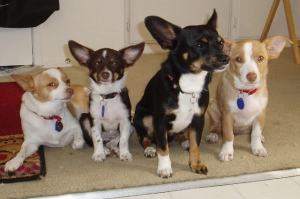

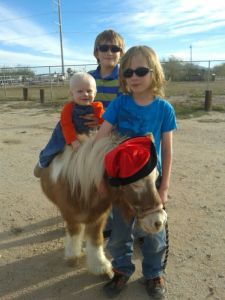

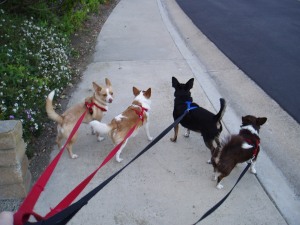

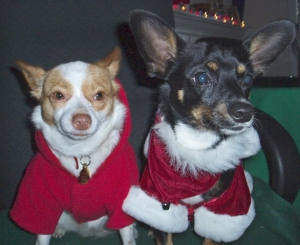
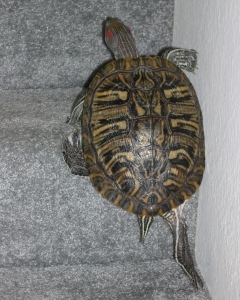
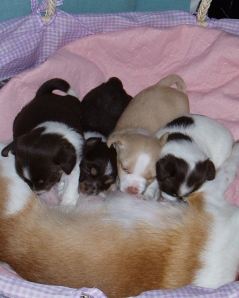
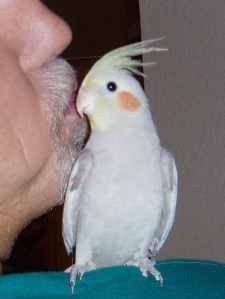
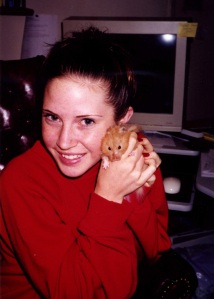
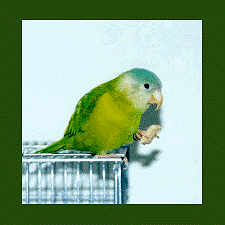
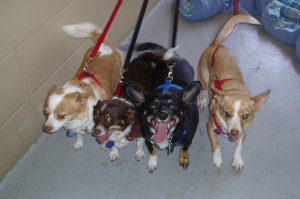
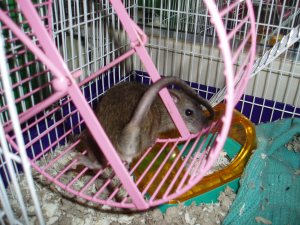

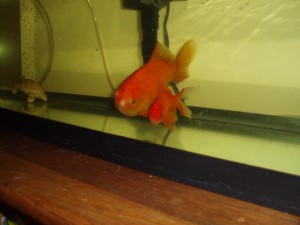
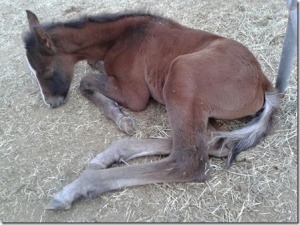
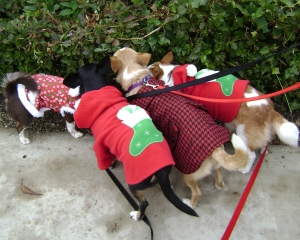
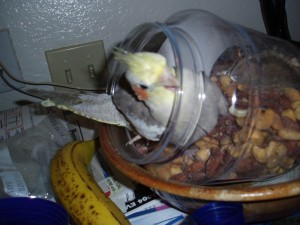
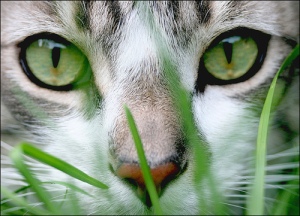
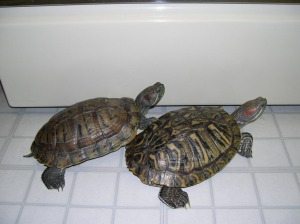
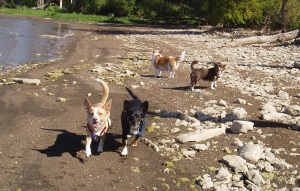
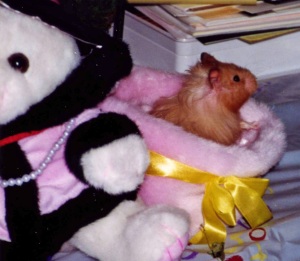
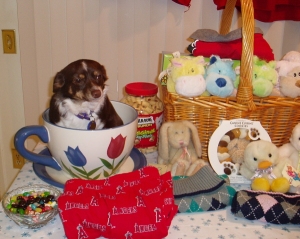
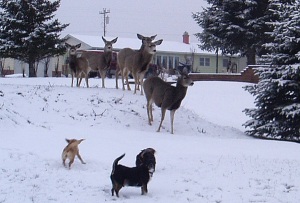


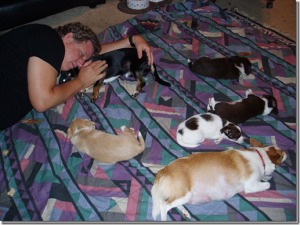
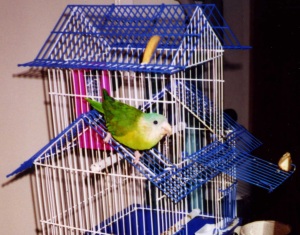


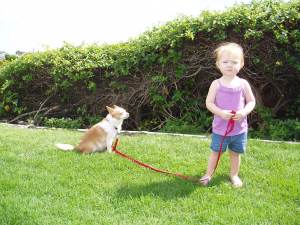
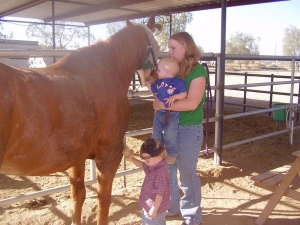
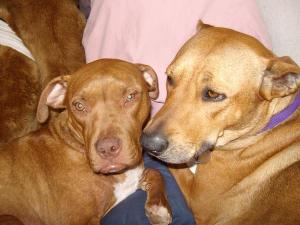
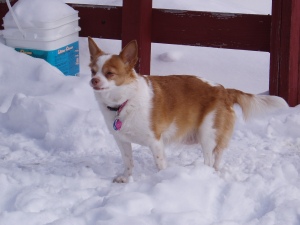
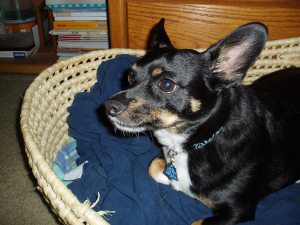
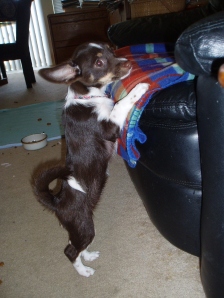
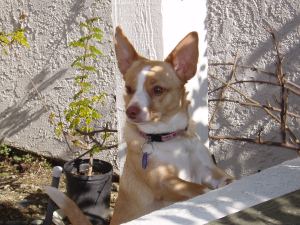
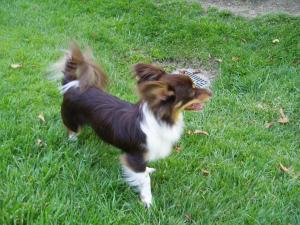
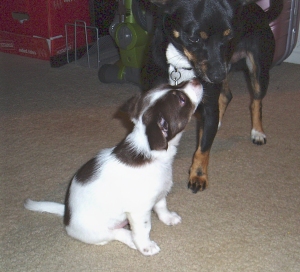
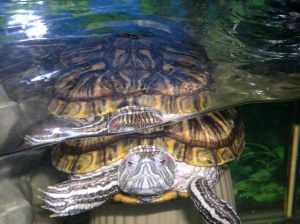
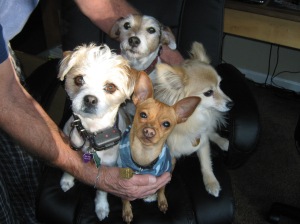


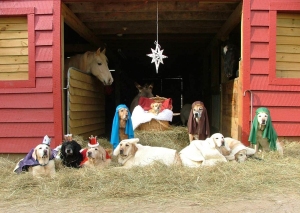

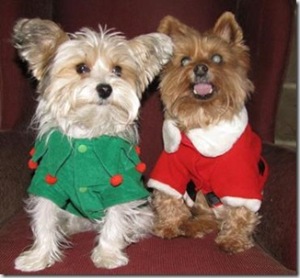
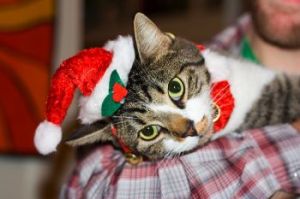
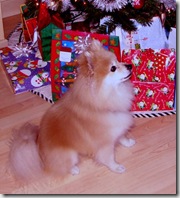

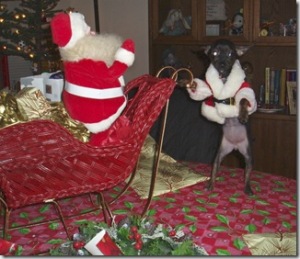


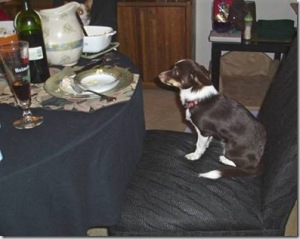
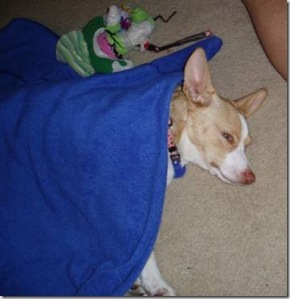
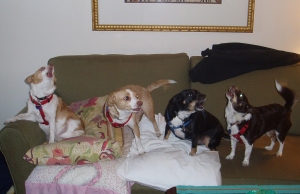
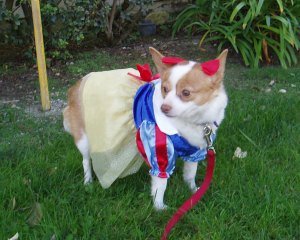
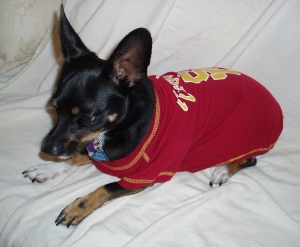
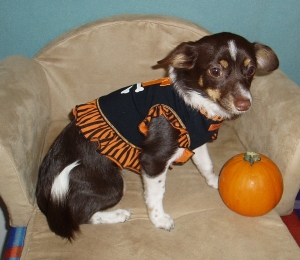
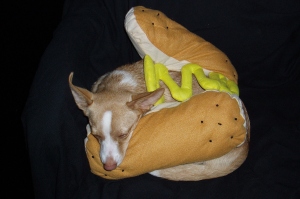
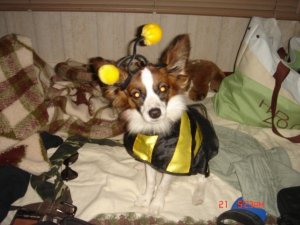

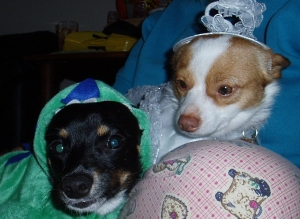
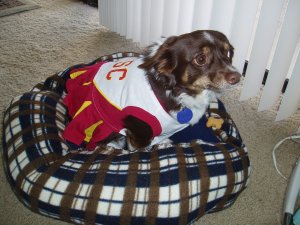
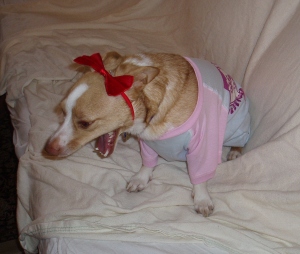
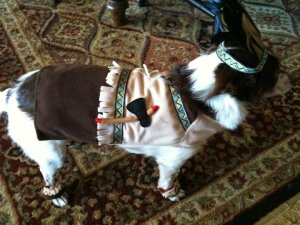
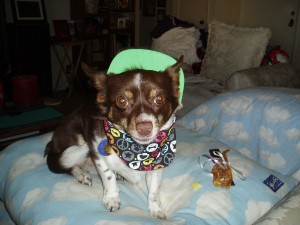
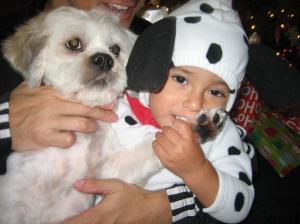




You must be logged in to post a comment.